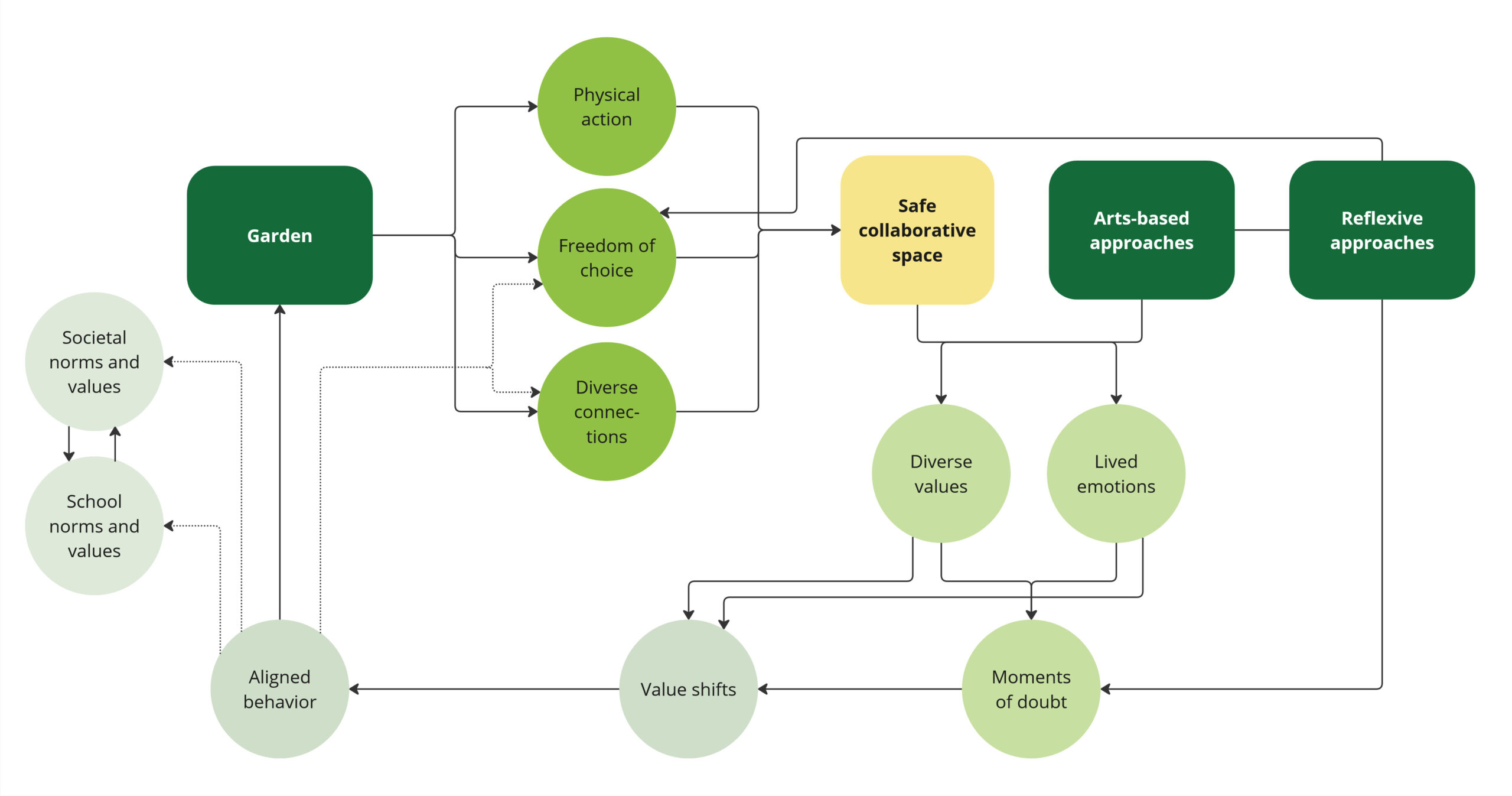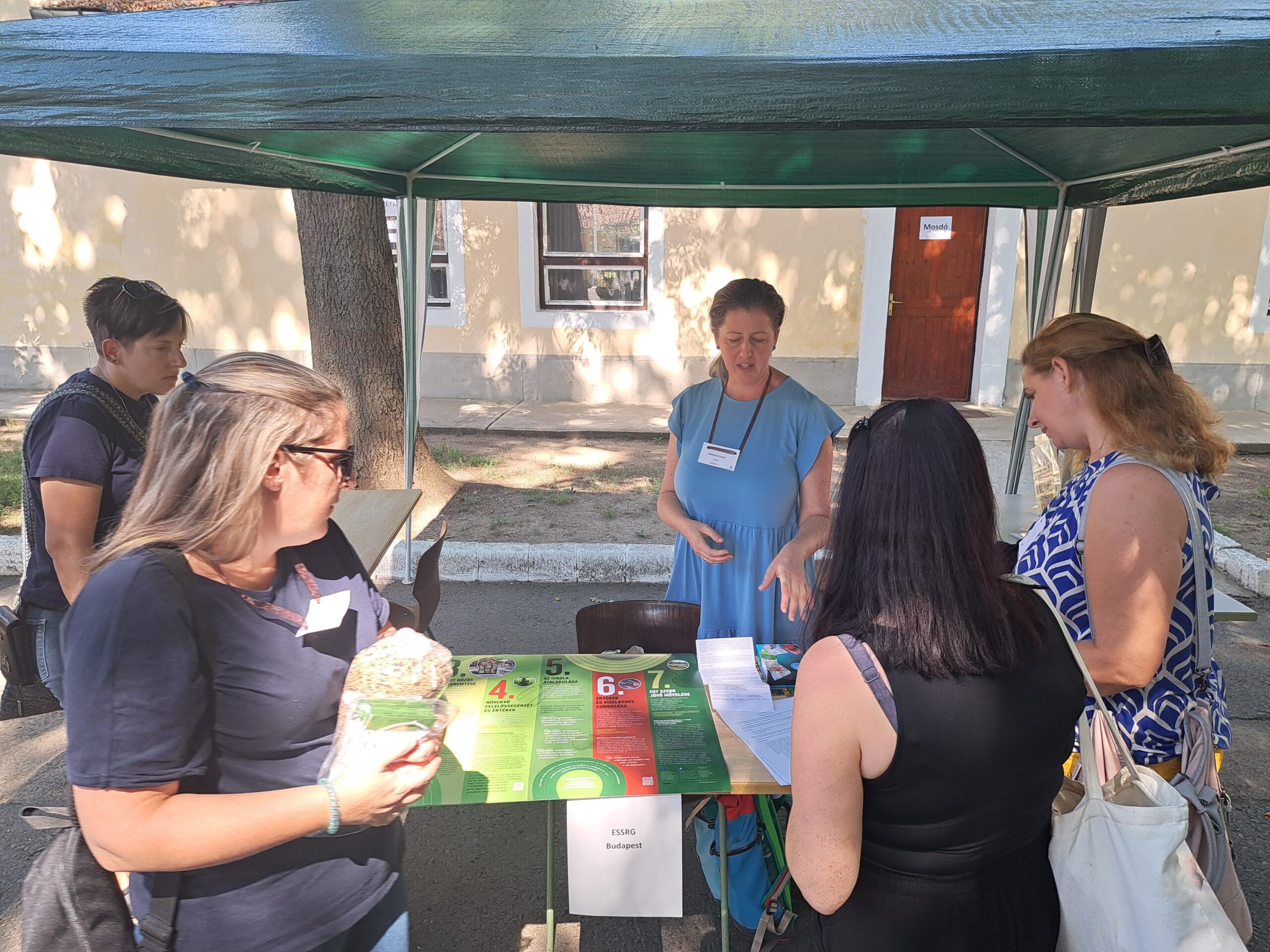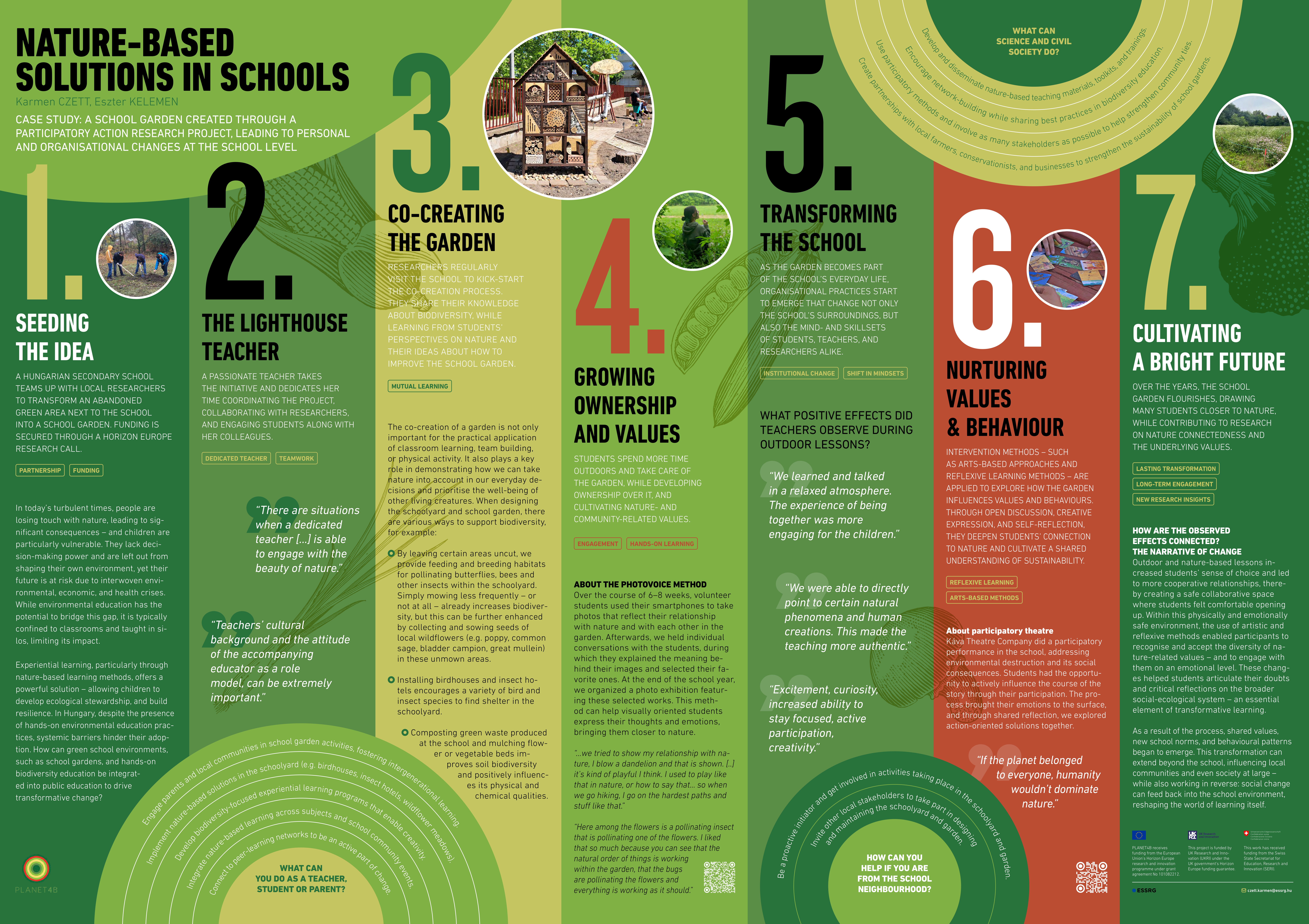Our transformative change story in biodiversity education, developed within the PLANET4B Project, highlights how experiential learning methods can spark change on multiple levels. Shared through an infographic artwork, conference presentations, and local outreach, the story focuses on the co-creation of a school garden and invites reflection on how experiential and arts-based learning can drive transformations in education and beyond. In addition, two biodiversity lesson plans were also developed and tested throughout this project, and are now getting published.
As part of the PLANET4B project, each case study developed its own transformative change story in different sectors. In our environmental education case study, we focused on one of our partners – a high school that co-created a school garden together with us researchers, leading to transformations on several levels. Gardening classes were also combined with several arts-based methods, such as participatory theatre and photovoice.
Our research points out that outdoor and nature-based lessons increase students’ sense of choice and lead to more cooperative relationships, thereby creating a safe collaborative space where students feel comfortable opening up. Within this physically and emotionally safe environment, the use of artistic and reflexive methods enable participants to recognise and accept the diversity of nature-related values – and to engage with them on an emotional level. These changes help students articulate their doubts and critical reflections on the broader social-ecological system. As a result, shared values, new school norms, and behavioural patterns begin to emerge – all of which are essential steps in a transformative learning process.

The story is displayed as an infographic (see by the end of this article), a beautiful artwork by Balázs Sipos. Our aim is to circulate it among schools, researchers, and other professionals, to serve both as inspiration and as a point of reflection on how experiential methods can drive systemic change in education.
As a first step of dissemination, Eszter Kelemen and Kármen Czett presented the transformative change story at the ISEE-Degrowth 2025 Conference. We also attended the annual School Garden Network Meeting in Girincs, Hungary, which focused on nature connectedness this year. This event was hosted in a beautiful castle that is home to a school for children with special needs and provided a strong alignment with our case study. We were inspired by the dedicated teachers working in the region and beyond, and we were also pleased to see that both our infographic and lesson plans were warmly welcomed by them.

This marks just the end of the beginning as we will continue working with community gardens within an upcoming project. Going forward, we plan to explore how experiential and arts-based learning methods can foster long-term shifts in education and beyond. Through this work, we aim to contribute not only to practices in environmental education, but also to ongoing research discussions about the role of experiential approaches in biodiversity-related transformations.
👉 You can access the transformative change story here, and the biodiversity lesson plans here.
